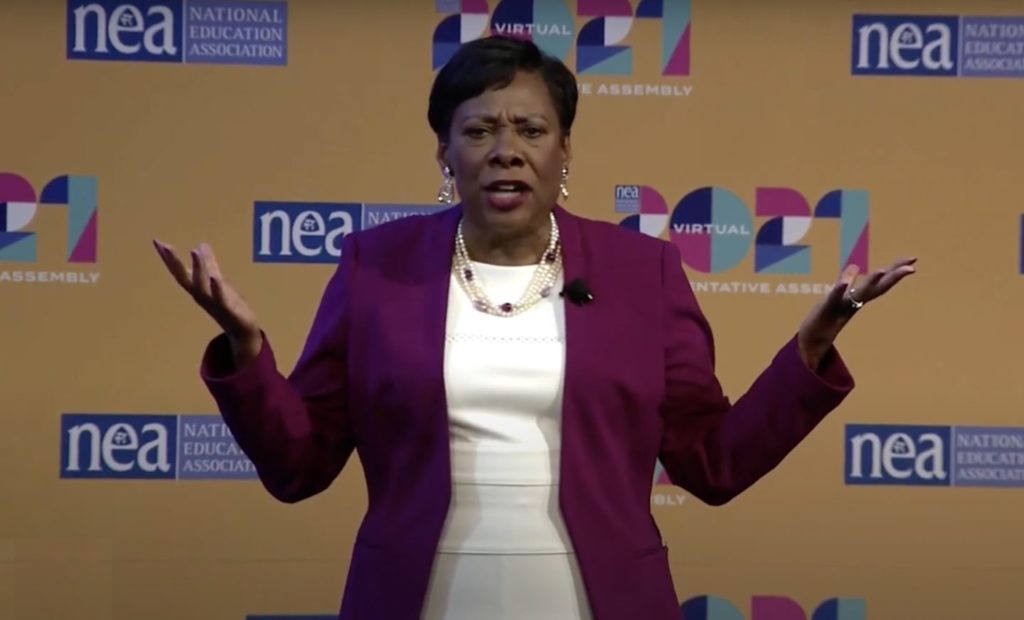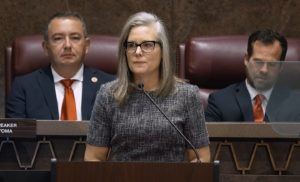U.S. Rep. Scott Fitzgerald proposes reform bill for nation’s largest teachers’ union
A U.S. congressman has proposed a bill to reform the National Education Association, which he accuses of being more “a political machine” than an advocate for education.
“Student success is…

A U.S. congressman has proposed a bill to reform the National Education Association, which he accuses of being more “a political machine” than an advocate for education.
“Student success is important now more than ever as schools and families grapple with devastating pandemic-era learning loss,” Rep. Scott Fitzgerald, R-Wisconsin, told The Lion. “It’s far past due to bring the National Education Association’s (NEA) federal charter in line with other Congressional Charters. My bill simply rededicates the organization to its founding principle and puts students at the forefront.”
In his press release, Fitzgerald accused the NEA – the nation’s largest teachers’ union – of being a “political machine masking as an advocate for public education.”
“I introduced the STUDENT act to rein in some of the worst practices to help make the NEA less divisive, more in line with other federally-chartered organizations, and more responsive to the needs [of] students,” he continued.
STUDENT stands for Stopping Teachers Unions from Damaging Education Needs Today.
“The NEA can no longer be considered a patriotic or national organization worthy of its Federal charter,” the bill states, citing the union’s support for abortion, illegal immigration, Gender Sexuality Alliance clubs, Critical Race Theory, and influencing CDC guidelines to keep schools closed during the pandemic.
The bill proposes limitations on the union that include:
- Not contributing to, supporting, or participating in any political activity. (About 60% of federal charters prohibit or limit political activism and lobbying);
- Requiring each officer of the NEA to be a US citizen;
- Instituting paycheck protection for teachers;
- Submitting an annual report to Congress;
- Not participate in or encourage any strike affecting state or local government.
Maxford Nelsen, director of labor policy at the Freedom Foundation, explains that NEA’s current charter is considerably looser than other federal charters.
“NEA’s charter is quite short and cedes to the union the ability to determine all substantive questions of its governance and operation through its own constitution and bylaws,” Nelsen wrote. “In effect, the NEA enjoys the recognition a charter confers without having to abide by the limitations and regulations of many other federally chartered corporations.”
Other charters include groups like Boy Scouts and the U.S. Olympic Committee.
“A political powerhouse,” Nelsen continues, “NEA undoubtedly exerts more influence over the policies and operations of American public schools than any other private special interest group.”
For example, the union reported $600 million in revenue during the 2021-22 school year, “not counting the revenue retained by the NEA’s hundreds, if not thousands, of state and local affiliates.”
And the union’s lobbying and political spending is incredibly one-sided. In a recent election cycle, nearly all – 98% – of its endorsements went to Democrats.
Additionally, the NEA has been criticized in recent weeks for prioritizing “education justice” over academic rigor.
At its annual convention, its president, Becky Pringle, also drew criticism for referring to students as “our babies.”
“The [NEA] is no longer a professional association. It’s not an advocate for quality education … it is a partisan political machine,” said Aaron Withe, CEO of the Freedom Foundation, in a press release.
“The innovative, practical reforms proposed by Rep. Fitzgerald would go a long way towards curbing the NEA’s most objectionable conduct [and] refocusing the organization on its original and appropriate mission of improving America’s education system,” Withe concluded.
The STUDENT Act has already been endorsed by 25 national and state policy centers and has 11 cosponsors.
According to Rep. Fitzgerald’s press secretary, the next steps for the bill will be to pass the House Judiciary Committee and have a floor vote.



